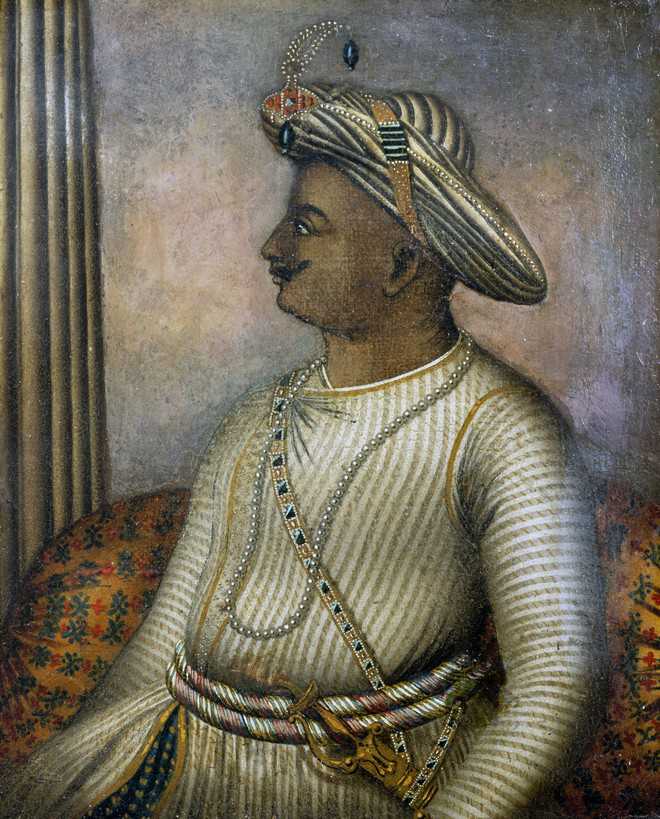M Rajivlochan
This book makes for a quick, easy and often instructive, reading. A professional historian, the author eschews jargon to reach out to the reader and take them carefully through the intricacies of the past in a manner of an expert guide, explaining the micro details of a historical site. This book is unique also for making extensive use of the Book of Dreams that Tipu wrote in the 1790s to understand him as a leader and identifies him as a believing Muslim who hoped to be the badshah of a kingdom that was mostly populated by Hindus.
Tipu was one of the few in India, along with his father, who realised that the English East India Company was essentially interested in territorial expansion rather than trade. While the Marathas, the Nizam, the Wodeyar family and other rulers were busy consorting with the Company in military matters, Tipu and his father, Haider, were the only ones to make efforts to strictly keep the Company out of the boundaries of their kingdom and not share any information of military value with them.
Brittlebank tells us that Tipu had also realised that it was the improved technologies for human resources and understanding nature that were behind the constant successes of the Company armies. Therefore, when, defeating them in battle, he overran the positions of Europeans, he instructed that the scientific instruments found be collected carefully and carried back for further examination.
However, when faced with defeat and troubles, she informs us, Tipu had a tendency to lapse into Islam. He did not hesitate to murder a few thousand Hindus or Christians here and there, simply to teach everyone else a lesson on obedience. Such behaviour, she explains, was the norm for those days; everyone did it, including the Marathas, who were happy attacking and looting important Hindu religious symbols — such as the Sringeri Math — that belonged to political groups that were not supporters.
Almost as if to provide solace to the contemporary reader of her book and dilute the charge that Tipu was a bigoted Muslim, who was hostile to all other communities, Brittlebank also tells of an episode in which Tipu treated roughly the Mahdavi sect of Muslims who formed an important part of his cavalry. The reason: The Mahdavis were prone to noisy bouts of prayer and refused to reduce the noise when so ordered by Tipu. The entire Mahdavi community was expelled from Tipu’s kingdom in 1794. They went on to join Arthur Wellesley when the English general decided to launch an attack on Tipu.
Since the death of Aurangzeb, there was no badshah, universal ruler, left in India. Tipu, Brittlebank argues, was unique among Indian rulers of his times, for aspiring to be a ‘badshah’, a universal king. He tried to understand western science and technology and their value for creating and supporting a humungous state system. He reached out to westerners whenever there was an opportunity, to seek out their assistance in the protection of his kingdom. Such was his desire to reach out, Birttlebank points out, that once in a while, a charlatan even succeeded in taking advantage of him and had him send envoys to the French on a fool’s errand to seek support from those who themselves needed support.
By 1798, Tipu with his aggressive ways had alienated every possible ally. The English saw this as a good opportunity to launch an attack on Srirangapatana. Brittlebank tells us that Tipu apparently went out of his palace to investigate a report that one of his generals had been killed. In the meanwhile, enemy soldiers entered the fort. Tipu joined the defence. He soon fell wounded. A British soldier noticed him lying and tried to remove his jewelled belt. When Tipu stopped him, the soldier shot him.
There are two further features of this book that I found very interesting. One is the easy way in which Brittlebank explains the structure of reasoning that historians follow when dealing with a subject as complicated and emotionally laden as Tipu Sultan, his numerous massacres, and the great loyalty shown to him by his subjects. The other is the formatting of the book — essentially for being read on a smartphone.
Unlock Exclusive Insights with The Tribune Premium
Take your experience further with Premium access.
Thought-provoking Opinions, Expert Analysis, In-depth Insights and other Member Only Benefits
Already a Member? Sign In Now










